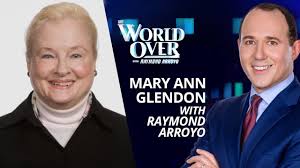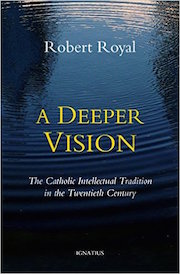Adolf Hitler is sometimes thought of as simply a thug, but he claimed that reading Fichte, Nietzsche, Kant, Hegel, Schopenhauer, Darwin, and Heidegger “provided the building materials and plans for the future . . . and a philosophy which became the granite foundation of all my later acts.”
In an important new book, Hitler’s Philosophers, Yvonne Sherratt examines Hitler’s vulgarization of various modern philosophers and the distinguished academics who supported the Führer and National Socialism.
To rationalize his warped Weltanschauung (“worldview”) Hitler cherry-picked from the writings of his philosophical heroes. His one-time friend, Ernst Hanfstaengl, said Hitler “was not so much a distiller as a bartender of genius. He took all the ingredients the German [tradition] offered him and mixed them through his private alchemy into a cocktail they wanted to drink.”
From Nietzsche, Hitler learned to hate democracy because it “encouraged mediocrity.” He admired Nietzsche’s warrior spirit and call for violence to achieve political ends: “Brutality is respectful. . . . Terrorism is absolutely indispensable in every case of the founding of a new power.”
He adopted Nietzsche’s idea that “a culture [must] encourage not equality but greatness” and “create conditions that require stronger men.” Hitler sought to breed Aryan supermen who would rule the world.
Hitler took from Hegel the notions that the state has supreme power over the individual and that historic progress demands conflict. Hitler believed that Hegel’s “force within history” applied to the German people, and he justified “an invasion of Europe using Hegel’s historic ideas of ‘coming into being.’”
Hitler embraced Kant because he concluded “the greatest service Kant has rendered to us. . .[was] the complete refutation of the teachings which were the heritage of the middle ages and of the dogmatic philosophy of the [Catholic] church.”
Hitler was also attracted to Kant’s view that Judaism was superstitious and irrational: “the Jewish religion is not really a religion at all, but merely a community of a mass of men of one tribe.” Sherratt points out that Kant “decreed in fact that pure morality sought ‘the euthanasia of Judaism.’”
From Fichte, Hitler learned of German exceptionalism and nationalism and agreed with Fichte’s declaration, “I see absolutely no way of giving Jews civic rights.”
As for Schopenhauer, Hitler boasted “I carried Schopenhauer’s works with me throughout the First World War. From him I learned a great deal,” apparently that he “glorified will over reason.”
Hitler pressed all these philosophical bits and pieces into the service of Social Darwinism. He insisted that only the fit had the right to survive: “The great masses are only a part of nature. . . .What they want is the victory of the stronger and the annihilation or the unconditional surrender of the weaker.” The so-called rules of humanity do not apply to man: “[he] lives or is able to preserve himself above the animal world, but sadly by means of the most brutal struggle.” “Only force rules. Force is the first law.” Only “the stronger man is right.”
After Hitler became German Chancellor, a number of respected scholars in philosophy, law, and science embraced him. They “eagerly collaborated to lend the Nazi regime a cloak of respectability.”
The most prominent was Martin Heidegger, the author of Being and Time, and one of the central figures in existentialism. After leaving a Jesuit seminary, Heidegger studied under the great phenomenologist Edmund Husserl who arranged for him to take over his chair of philosophy at the University of Freiburg in 1928.
In May 1933, weeks after he joined the Nazi Party, Heidegger was named Rector of Freiburg University and in his inaugural address praised National Socialism and gave the Nazi salute.
In the University newspaper in late 1933 he wrote:
May you ceaselessly grow in courage to sacrifice yourselves for the salvation of the nation’s essential being and the increase of its innermost strength in its polity. . . .The Führer himself and he alone is the German reality, present and, and its law. . . Heil Hitler.
He issued the Baden Decree that suspended non-Aryan professors at the University. His mentor, Edmund Husserl was a victim of that decree.
Heidegger also lobbied for the creation of a chair in race studies and genetics and “advocated that ‘in order to preserve the health of the state’ questions of euthanasia should be seriously contemplated.”
Sherratt rightly observes: “Heidegger had helped glorify the Führer. He had provided the icing on the cake of Hitler’s dream: for here was the intellectual Nazi superman for all to see.”
After the philosopher-Führer committed suicide in 1945, the philosopher-collaborators ran for cover. With the aid of university colleagues, they covered up their activities and ignored the past: “A veil of silence descended across the university halls.”
Heidegger never even condemned the Holocaust and “simply likened the loss of Jewish lives to the Germans killed during combat.” When pressed to repent, he complained “that Hitler let him down. ‘Is Hitler going to apologize to me?’”
Hannah Arendt, a former student, and Jean Paul Sartre, however, protected Heidegger’s reputation. He was re-appointed as a professor at Freiburg University in 1951 and is still regarded as one of the twentieth century’s greatest philosophers. Intellectual admiration, Sherratt points out, “outweigh[ed] any potential moral distaste.”
Her fine book, however, ends on a troubling but prescient note. While the German political and governmental systems were de-Nazified, not enough was done to expose, expunge, or condemn the ideas underlying the Nazi state. “Without vigilance,” she asks, “might cryptic words not disguise prejudice, and the seeds of Hitler’s philosophy carry forward to new generations?”
She’s right. Lack of vigilance has empowered promoters of the Culture of Death, which has been successfully advocating policies such as euthanasia as acts of compassion. Ironic, since such acts were condemned at the Nuremberg trials as crimes against humanity.
Intellectuals still have an attraction to many other deadly notions inherited from the last century or so of “advanced” thought, not least a crude materialism that, more than ever, needs careful scrutiny.
















